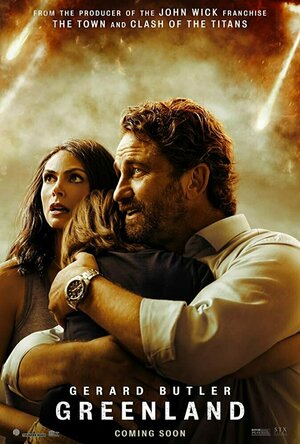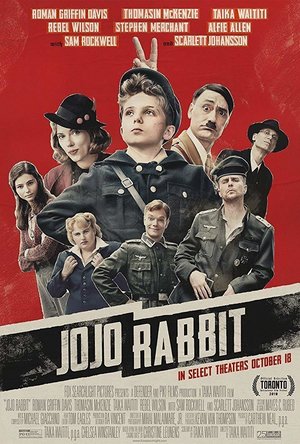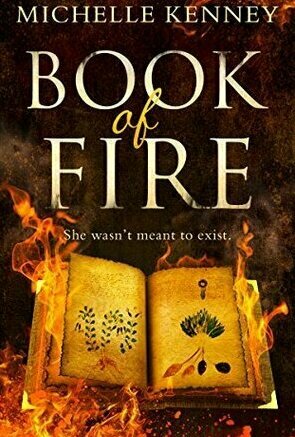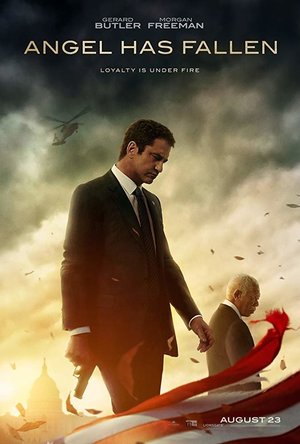BankofMarquis (1832 KP) rated Greenland (2020) in Movies
Jul 1, 2021
“Great”, I thought, “a disaster flick starring the guy from another cheesy disaster flick GEOSTORM, this should be fun, mindless entertainment”.
It wasn’t mindless and it wasn’t - most definitely - fun.
GREENLAND takes a “realistic” approach to the “what would happen if a killer comet starts barreling towards the Earth”. Because of this “realistic” approach, the mood throughout the film is pretty somber while the characters stand around and talk about the implications/consequences of this event.
There are 3 BIG issues with this film and it’s approach
1). The “realism” of what happens only occurs in service to the plot, when our heroes need to get from “Point A” to “Point B”, the freeways and roadways are, magically, empty - and a vehicle (completely full of gas) is conveniently awaiting them.
2). Gerard Butler is not even close enough of a good actor to carry the dialogue-heavy scenes.
3). Butler and his estranged wife (is there any other type of couple in these types of films) played by the “good enough” Morena Baccarin (DEADPOOL) are saddled with one of the most annoying, whiny kids (badly acted by Roger Dale Floyd) in the history of movies. At one point the child disappears from the plot (it would be a spoiler to explain why), I was really hoping that this character would not come back.
About the only thing that works in this film is a brief, extended cameo by Scott Glenn as Baccarin’s father, it lifts the middle of this sagging film at a time that it desperately needed it, giving me hope for the last 1/2 of the movie - a hope that was not realized.
I’m not sure I can lay all the blame of this failed film on Director Ric Roman Waugh (Angel Has Fallen), but he didn’t help himself here, either. He lingers way to long on events, dialogue and scenes, with the standard “light piano” underscore that emphasizes the importance of what is going on.
I blame the Producers of this film who, originally, had Neill Blomkamp (DISTRICT 9) lined up to Direct and Chris Evans to star in his first post-Avengers role. Both ended up dropping out and I can only imagine that the Producers cut the Director, Casting and Special Effects budgets, but kept the seriousness and realism of the tone.
It didn’t work.
Skip GREENLAND. If you want to check out “comets hitting the Earth” films, I would steer you towards the 1990’s duo of ARMAGEDDON and DEEP IMPACT.
Letter Grade: C
4 Stars (out of 10) and you can take that to the Bank(OfMarquis)

Office touch: word processor + spreadsheet file editor
Business and Productivity
App
Like to have an "All in One" app to create both spreadsheets and documents? This app has been...
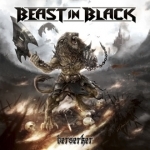
Berserker by Beast in Black
Album Watch
The metal world was in rage when Anton Kabanen parted ways with his former band BATTLE BEAST back in...
Metal

DomiNations
Games and Entertainment
App
Grow a flourishing civilization and journey through all of human history as the leader of a mighty...
Emma @ The Movies (1786 KP) rated Jojo Rabbit (2019) in Movies
Jan 11, 2020
Jojo wants to be a good German, but as he's about to go off to a Nazi Youth Camp he worries about how he'll do. Luckily he has a friend to help him through it, Adolf Hitler. The Fuhrer is always with him in spirit.
Recovering at home after an accident Jojo discovers that he's not alone in the house. He discovers Elsa hiding in a wall space upstairs, hidden by his mother. Jojo is torn, he should report her to the authorities but that could be bad news for him and his mother.
I was genuinely surprised about who was turning up to see this. There were a lot of family groups and groups of teenagers. It shouldn't really shock me, everyone has their own interests in a wide variety of things, but I wasn't expecting to see such young people coming to see it.
By far my favourite thing about this film was Sam Rockwell as Captain Klenzendorf, a little bitter with his situation and begrudgingly training the kids for the battles ahead, he's making the best of a bad situation. He's funny, and more importantly, glorious in battle. From the ridiculous to a surprisingly moving scene at the end, he was the performance of the whole film for me.
Child actors have their ups and downs, some have the knack right out of the gate but I didn't really get that from Roman Griffin Davis or Archie Yates. Both got some good moments out of the script but their delivery and the consistency of the characters didn't carry through it as a whole.
Thomasin McKenzie however brought a little something extra to her role of Elsa. I didn't mind her slightly more serious parts in this but it was difficult to get much more out of it when so much revolved around her and Jojo in scenes together. I don't like "awkward" and some of the scenes are *shudder*.
I can't really talk about the film without talking about Taika Waititi as Hitler. I found him quite amusing to begin with but when the character started to change as Jojo did I felt it was a little over the top.
Dramatic moments pop up when you really aren't expecting them, two in particular stuck with me afterwards. One, as I mentioned, with Sam Rockwell and the other with Scarlett Johansson. Rockwell's was a complete surprise, but ScarJo's, though unexpected, was overplayed a lot in the build up.
Jojo Rabbit is a very odd film, I didn't know what to expect at all really and the final result left me no wiser. Entertaining yes, but not something I would have to see again.
Originally posted on: https://emmaatthemovies.blogspot.com/2020/01/jojo-rabbit-movie-review.html
Hazel (1853 KP) rated Book of Fire in Books
Mar 7, 2020
Combining dystopia and ancient history, Michelle Kenney's debut series Book of Fire slots nicely into the list of best young adult science-fiction. Set in the not so distant future, the world has been destroyed and human life can only be sustained within a specially designed lifedome - at least that is what everyone living inside has been told. The protagonist, Talia, begs to differ, having lived in secret on the outside all her life.
A rogue test missile exploded with cataclysmic effect on 3rd November 2025, leaving cities in ruins. Whilst most people ran to the lifedome, Talia's grandfather and a few others ran in the opposite direction. For years, they have lived in the relative safety of Arafel, whose existence has been kept hidden from the majority of the people living in the dome.
Unfortunately, the leader of the lifedome is one of the few who knows of their existence and wishes to eradicate them and Talia's peaceful life is suddenly destroyed when her grandfather and her twin brother Eli are captured by soldiers. Determined to rescue them, Talia and her friend Max break into the dome but what they discover makes them even more concerned about the life of not just their families but all the remaining humans.
Obsessed with Ancient Rome, the lifedome's leader Octavia has created a replica of the historical city, going as far as to genetically produce strong and powerful gladiators. Yet, the more Talia sees of the lifedome - Pantheon - the more she realises it is not just extra-strong humans that Octavia has been experimenting with. Hidden in the depth of the dome are mythological creatures made from a mix of human and animal parts; creatures that should not exist, however, they all have various defects.
Talia soon learns that her grandfather was kidnapped for a reason: he knows the secret to create the perfect DNA for these creatures and, in turn, Talia unwittingly knows it too.
Initially, all Talia wanted was her grandfather and brother back but now she is part of something much bigger and must choose between her family, self-preservation and the rest of the human race. On top of that, she begins to fall for a pseudo-Roman Gladiator. Could it get any more complicated?
Michelle Kenney has created a world where the monsters turn out to be the heroes and the humans in charge, the monsters. Reading this at the time of the coronavirus makes the apocalyptic situation a little too close for comfort but it provides a strong message not to mess with things that no longer exist. Imperfection is a common by-product of life's recover - if only Octavia could have accepted that.
Book of Fire is the first in a promising trilogy that will transport you into a world of fantasy, danger, wonderful creatures and a hint of reality. For those who love ancient history and dystopian fiction will thoroughly enjoy this series.
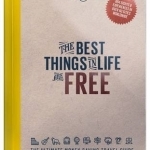
The Best Things in Life are Free
Book
Lonely Planet's The Best Things in Life are Free is packed full of money-saving tips, tricks and...
BankofMarquis (1832 KP) rated Angel Has Fallen (2019) in Movies
Aug 26, 2019
Such is the case with ANGEL HAS FALLEN the 3rd film in the "Fallen" series (following OLYMPUS HAS FALLEN and LONDON HAS FALLEN) that follows the trials and tribulations of White House Secret Service Agent Mike Banning (Gerard Butler) as he tries, once again, to save the President (a game, stern - yet sincere - Morgan Freeman) from an assassination attempt. But this time...the twist is...that Mike is framed for the attempt, so he has to go on the lamb "The Fugitive" style to clear his name and to find out who really dunnit.
I figured out who dunnit - and who was behind it - in about the first 3 minutes those characters/performers were on the screen - but it's the destination, not the journey, that counts in these types of films and this journey is..."so-so".
The plot contrivances, action sequences and chase scenes are all pretty middle-of-the-road with Director Ric Roman Waugh (SNITCH, FELON) resorting to the quick-cut, jittery camera "cinema verite" style of action shooting that, to me, shows laziness in choreography and originality and ends up giving me a bit of a headache.
So...failing a good plot and good action sequences, a film like this must have good, interesting characters and good, interesting actors inhabiting them. And...for the most part...that part of this film generates some interest as the previously mentioned Morgan Freeman, the always dependable Lance Reddick, the oily Danny Huston and the quirky Tim Blake Nelson all share the screen to good effect. Piper Perabo also joins the fray as Mike's wife and she elevates that side of the proceedings.
In the end, it comes down to the screen presence and charisma of star Gerard Butler as Mike and - unfortunately - he just doesn't have enough of that to keep things interesting. Especially when he spends a large part of the film playing against an actor who plays Butler's father - the one and only Nick Nolte.
And he...just about...steals the movie. Here is an actor that has screen presence and charisma to spare, even under long hair, a beard and a voice that has seen many, many cigarettes and booze.
And this takes us back to the beginning (or should I say, the end) of the film...Nolte and Butler share the end credits scene and it's, by far, the best darn thing in this mediocre film.
If you're going to sit through this, make sure you stay for the end credits scene.
Letter Grade B-
6 stars (out of 10) and you can take that to the Bank(ofMarquis)

IRIScan to Word
Business and Productivity
App
IRIScan to Word turns your iPhone & iPad into a scanner! Scan paper documents using the native...
